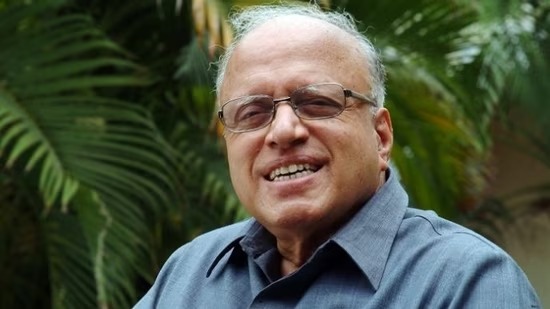Bhubaneswar: Mankombu Sambasivan Swaminathan (MS Swaminathan), legendary agricultural scientist and father of India’s ‘Green Revolution,’ died at the age of 98 in Chennai on Thursday.
Born on August 7, 1925 in Tamil Nadu’s Thanjavur district, he was an agronomist, agricultural scientist, plant geneticist, administrator, and humanitarian who played a crucial role in developing high-yielding varieties of paddy that helped ensure India’s low-income farmers produce more yield.
Swaminathan started his career in 1949 researching on the genetics of potato, wheat, rice and jute. When India was on the verge of a mass famine leading to scarcity of food grains, Swaminathan along with Norman Borlaug and other scientists developed the high yield variety seeds of wheat.
Swaminathan, who is known as the “Father of Economic Ecology” by the United Nations Environment Programme, worked with agriculture ministers including C Subramaniam and Jagjivan Ram during 1960s and 70s for the success of the ‘Green Revolution,’ an initiative that paved the way for exponential rise in productivity of wheat and rice through adaptation of chemical-biological technology.For developing and spearheading the introduction of high-yielding wheat and rice varieties into India, he was awarded the first World Food Prize in 1987 following which he set up the MS Swaminathan Research Foundation in Chennai. Swaminathan was also awarded with Ramon Magsaysay Award in 1971 and the Albert Einstein World Science Award in 1986.
He had also been conferred with the Padma Shri, Padma Bhushan and the Padma Vibhushan. He is also the recipient of the H K Firodia award, the Lal Bahadur Shastri National Award and the Indira Gandhi Prize.
The Indian agriculturalist had also held administrative positions in various agricultural research laboratories. He served as the director general of Indian Council of Agricultural Research and later International Rice Research Institute. He also served as the principal secretary of the ministry of agriculture in 1979.
For developing and spearheading the introduction of high-yielding wheat and rice varieties into India, he was awarded the first World Food Prize in 1987 following which he set up the MS Swaminathan Research Foundation in Chennai. Swaminathan was also awarded with Ramon Magsaysay Award in 1971 and the Albert Einstein World Science Award in 1986.
He had also been conferred with the Padma Shri, Padma Bhushan and the Padma Vibhushan. He is also the recipient of the H K Firodia award, the Lal Bahadur Shastri National Award and the Indira Gandhi Prize.
The Indian agriculturalist had also held administrative positions in various agricultural research laboratories. He served as the director general of Indian Council of Agricultural Research and later International Rice Research Institute. He also served as the principal secretary of the ministry of agriculture in 1979.
In 1988, Swaminathan became the president of the International Union of the Conservation of Nature and Natural resources. In 2004, he was appointed as chair of the National Commission on Farmers.
Beyond his work in the country, Swaminathan was an spectacular figure globally, contributing to various international agricultural and environmental initiatives. He was named one of the 20 most influential Asians of the 20th century by Time magazine.
He is survived by his three daughters Soumya, Madhura, and Nitya. His wife Mina died in 2022.








